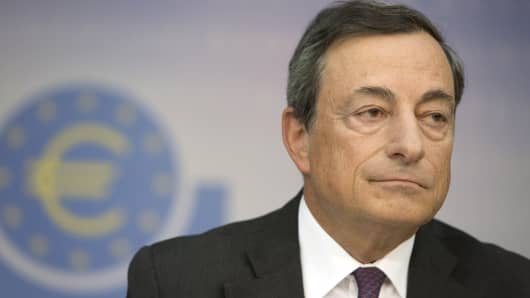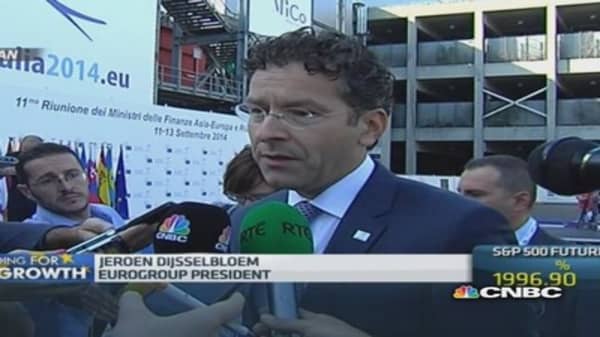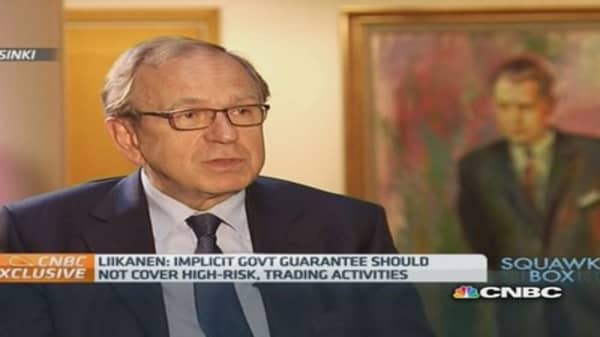What happened last Thursday (September 18, 2014) is a case in point. The ECB conducted an allocation of nearly zero-interest loans to banks in an effort to increase their lending to the private sector. But it appears that the number of banks (255) willing to participate in this operation was much smaller than anticipated, and that the €82.6 billion they took from the ECB was only about 60 percent of what bank analysts were expecting.
It remains to be seen, therefore, whether the ECB's decision to boost its balance sheet to €2.7 trillion from the current €2 trillion with these lending operations and purchases of asset-backed securities will restore the intermediation process to provide some traction to its monetary policies.
The Germans apparently fear that all this additional liquidity is unnecessary and that it will merely feed equity and real estate asset bubbles. They also see problems in the banking system down the road. In their view, the abundance of cheap money will relax banks' prudential standards and boost profits, while presenting taxpayers' with huge bailout bills when the banks get in trouble.
At the moment, the German warnings don't seem to be widely shared within the euro area.
Read MoreFrench reforms will help G-20 reach goal: Finance Minister
And neither do most German euro partners show the same sensitivity to political aspects of the ECB's excessive monetary easing. Berlin correctly fears that cheap and ample funds offer easy ways of budget financing. That relaxes the fiscal discipline – the essential condition for the stability of the monetary union. The easy money policies, they say, also dull the urgency for structural reforms to restore competitiveness, which leads to unsustainable balance-of-payments problems in crisis-prone member countries.
But Germany is getting a broader audience. Its warnings have been echoed last Thursday by the Financial Stability Board saying that loose monetary policies are prompting search for higher yields as investors seem increasingly complacent about credit risks. The communiqué of the G-20 finance ministers and central bank governors meeting in Cairns, Australia (September 20-21, 2014) contains the same warning.
Investment thoughts
The upshot is that Germany will now be strengthened in its quest for monetary stability within the euro area. That will make it very difficult for the ECB to flood the market with more liquidity through unnecessary and unconventional monetary policies.
And that's the way it should be. The euro area's weak economy needs no additional liquidity. It needs a properly functioning monetary transmission mechanism to channel already available funds to businesses and households -- and it needs a more supportive fiscal policy.
On this last point, Germany will have to relent on its euro area austerity drive. With balanced public sector accounts and a whopping 8 percent of gross domestic product trade surplus, Berlin owes it to its euro partners to strongly boost its domestic demand.
If, with all these warnings, you are reviewing your portfolios, please note that equities offer enough means for an appropriate risk management without a wholesales move into cash positions.
Michael Ivanovitch is president of MSI Global, a New York-based economic research company. He also served as a senior economist at the OECD in Paris, international economist at the Federal Reserve Bank of New York and taught economics at Columbia.






